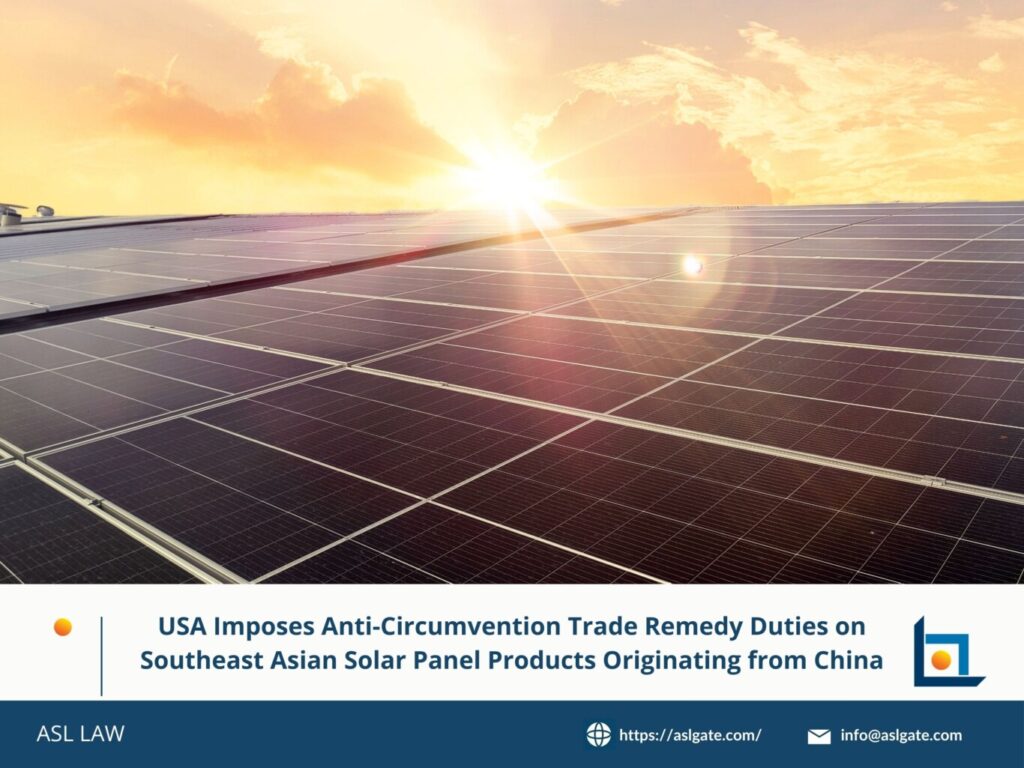Following a lengthy investigation into unfair trade practices, the USA government has officially imposed new duties on most solar panel products originating from China but manufactured in four Southeast Asian countries: Malaysia, Cambodia, Thailand, and Vietnam. The highest duty rate has been applied to products from Cambodia, exceeding 3,500%, as local producers failed to cooperate with the investigation process.
On April 21, the USA Department of Commerce released the results of its investigation, determining specific anti-dumping and countervailing duties for individual companies. Accordingly, Jinko Solar’s facility in Malaysia will be subject to the lowest duty of 41.56%. Meanwhile, products from Trina Solar’s plant in Thailand will face a rate of 375.19%, and those from its facility in Vietnam will be taxed between 58% and 271%, depending on the company involved.
Cambodia faces particularly high duties—surpassing 3,500%—as companies there did not provide the necessary information during the USA investigation. As of now, neither Jinko Solar nor Trina Solar has issued an official response to the duty decision.
The USA International Trade Commission (ITC) is expected to hold a vote in June to determine whether the domestic solar industry has been materially harmed by foreign dumping and subsidies. If the ITC confirms such injury, the duties will formally take effect.
The case stems from a petition filed by companies including Hanwha Qcells (South Korea), First Solar Inc. (USA), and several smaller manufacturers. These entities allege that Chinese companies established production facilities in Southeast Asia to circumvent existing duties, exporting products to the USA at prices below production costs while benefiting from unfair subsidies from the Chinese government—causing significant harm to USA manufacturers.
According to data from BloombergNEF, solar panel products from factories in Malaysia, Thailand, Vietnam, and Cambodia accounted for 77% of all USA solar panel imports last year, totaling approximately USD 12.9 billion. However, imports from these countries are expected to decline sharply this year, while shipments from emerging markets such as Laos and Indonesia are on the rise.
The Solar Energy Industries Association (SEIA) has expressed concern that broad-based duties, including those on components, could significantly increase input costs for domestic assembly plants. This comes at a time when the USA clean energy manufacturing sector is experiencing rapid growth, supported by the Inflation Reduction Act passed in 2022 under former President Joe Biden.
To protect their legitimate interests, manufacturers and exporters should familiarize themselves with the procedure and actively contact Vietnamese law firms specializing in anti-dumping and trade remedy for timely assistance.
ASL Law is a leading full-service and independent Vietnamese law firm made up of experienced and talented lawyers. ASL Law is ranked as the top tier Law Firm in Vietnam by Legal500, Asia Law, WTR, and Asia Business Law Journal. Based in both Hanoi and Ho Chi Minh City in Vietnam, the firm’s main purpose is to provide the most practical, efficient and lawful advice to its domestic and international clients. If we can be of assistance, please email to [email protected].
ASL LAW is the top-tier Vietnam law firm for Anti-dumping & countervailing. If you need any advice, please contact us for further information or collaboration.

 Tiếng Việt
Tiếng Việt 中文 (中国)
中文 (中国) 日本語
日本語

